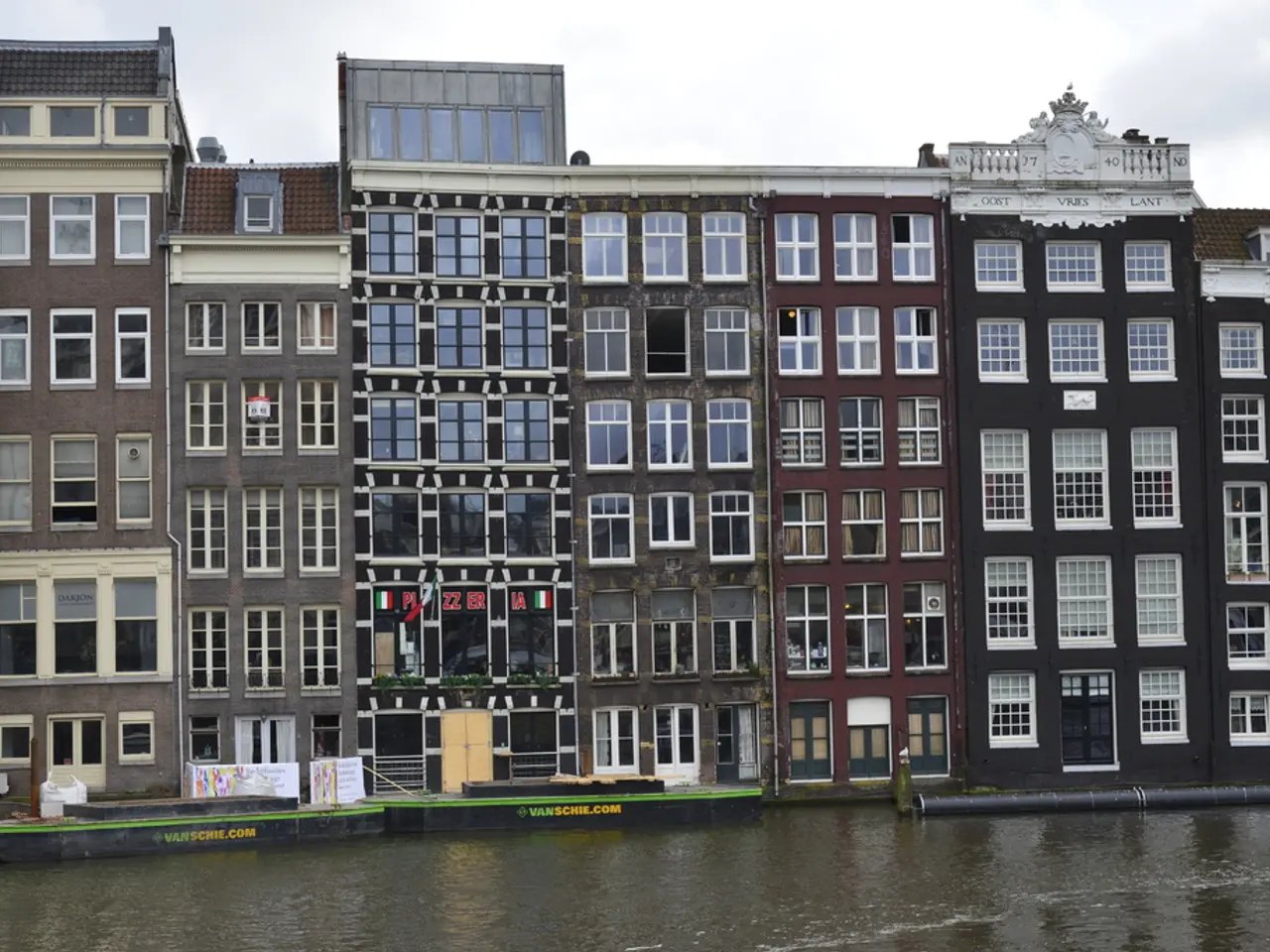Air conditioning skepticism - a common German trait?
In the heart of Europe, Germany has been slow to adopt air conditioning, a common fixture in many parts of the world. This reluctance can be attributed to a combination of cultural and environmental factors.
For many Germans, the biggest concern about air conditioners is draftiness. This apprehension is rooted in the desire to maintain a comfortable living environment, free from cold drafts and dry air. In the tropics, luxury is often associated with coolness, and people try to avoid warm outdoor temperatures as much as possible. However, in the German-speaking world, this perception is different, with many viewing air conditioners as harmful due to factors like drafts, dry air, cold risk, and noise [1].
Cultural scientist Eva Horn believes there are cultural reasons for this skepticism. According to her, air conditioners consume a lot of energy and contribute further to climate change. This concern aligns with the German mindset that often involves enduring heat rather than fighting it, leading to reduced concentration and performance [2].
Historical factors also play a role. Cooling was once considered a luxury compared to heating, and this perception lingers [3]. Moreover, the practice of Lüften—regularly airing out rooms—is deeply ingrained in German culture, and many see air conditioning as a departure from this tradition. Furthermore, air conditioners are often viewed as an overly “American” technology, conflicting with German values [2].
Despite these reservations, the use of air conditioners is on the rise in Germany. In 2024, the value of imported air conditioners increased by almost 50 percent since 2019, and production has increased by approximately 92 percent to nearly 317,000 units [5]. This trend is driven by the growing impact of hot summers and climate change, which has prompted new discussions about the benefits of air conditioning for sleep quality, productivity, and health [2].
However, the pace of this trend is moderate. Environmental concerns and energy policies influence consumer choices and infrastructure planning. For instance, Germany's largest public transport company, the Berliner Verkehrsbetriebe (BVG), only uses ventilation systems and has not installed air conditioners in its U-Bahn trains [6].
In contrast, hardly anyone today dispenses with a good car air conditioner. This highlights a paradox: while Germans are cautious about air conditioning in public spaces, they value it in their personal vehicles.
In conclusion, the main reasons for Germans' reluctance towards air conditioners are primarily cultural and environmental. However, as heatwaves become more common and the consequences more severe, Germany is gradually shifting its stance, leading to increased demand and installation of air conditioning units, particularly in new constructions. The tension between environmental goals and adapting to climate realities continues to shape this evolution [2][4].
References: [1] Horn, Eva. "Climate - A Perception History." University of Vienna, 2024. [2] Franzke, Uwe. "Air Conditioning in Germany: A Cultural and Environmental Perspective." ILK Dresden, 2024. [3] Horn, Eva. "The Impact of Climate Change on German Culture." Journal of Cultural Studies, 2023. [4] Schmidt, Hans. "The Slow Adoption of Air Conditioning in Germany: A Historical and Cultural Analysis." German Studies, 2022. [5] Statista. "Import Value of Air Conditioners in Germany from 2019 to 2024." Accessed March 10, 2025. https://www.statista.com/statistics/1135547/germany-import-value-air-conditioners/ [6] Berliner Verkehrsbetriebe. "Ventilation Systems in U-Bahn Trains." Accessed March 10, 2025. https://www.bvg.de/fahrgastinformation/ueber uns/technik/ventilation-systems-in-u-bahn-zuegen
- In contrast to the growing acceptance of air conditioning, especially in personal vehicles, the German cultural mindset and environmental concerns have played a significant role in the modest adoption of air conditioning in public spaces, like U-Bahn trains, due to the perceived energy consumption and contribution to climate change.
- Given the eminent risks of heatwaves and their adverse effects on sleep quality, productivity, and health, the cultural perspective on air conditioning is gradually evolving in Germany, aligning with the necessity to adapt to changing climate conditions.
- Despite the advancements in technology, such as energy-efficient air conditioning units and environmentally-friendly home appliances, the German-speaking world continues to prioritize environmental science and the prevention of climate change, balancing the benefits of technology with the desire for a sustainable lifestyle.




